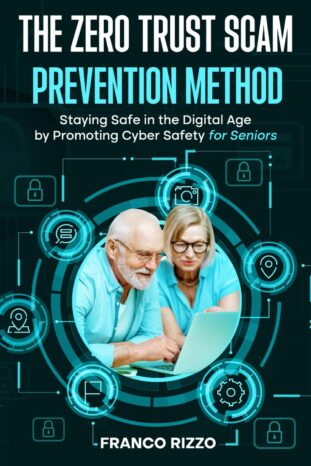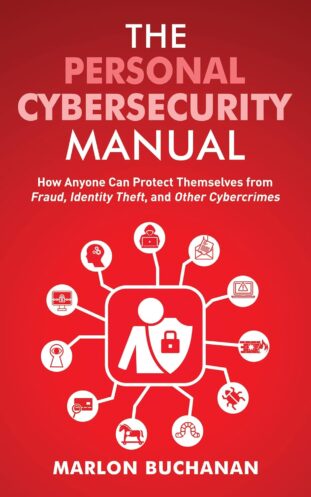Common financial scams targeting seniors often exploit their trust, unfamiliarity with technology, and sometimes isolation.
Just imagine: You’re enjoying your morning coffee when the phone rings. The voice on the other end claims you’ve won a tropical vacation—finally, a reward for putting up with all those telemarketers! But hold the sunscreen! If it sounds too good to be true, it probably is.
Scammers are out there, and they’ve got seniors in their sights. Before you start packing your bags for that imaginary cruise, let’s dive into some of the most common tricks they use. Trust me, you will want to stay ahead of these smooth-talking swindlers!
This article gives you the scoop on these common financial scams targeting seniors and not only provides you with scenarios, but also with the key red flags you should be on the look-out for to end those draining calls!
Common Financial Scams Targeting Seniors

Here are some of the most frequent scams:
1. Medicare/Health Insurance Scams
2. Phishing and Tech Support Scams
3. Telemarketing Scams
4. Investment and Ponzi Schemes
5. Grandparent Scams
Let’s look at each one of these in detail.
Canadian Health Card Fraud & Medicare/Health Insurance Scams
This is one of the most common financial scams targeting seniors. They exploit the trust and vulnerability of seniors, much like Medicare scams in the United States, and can lead to identity theft or financial loss if successful.
Canadian Health Card Fraud
Scammers pose as representatives from provincial health departments (such as OHIP in Ontario or RAMQ in Quebec) or as employees of private insurance companies.
They contact seniors claiming there are updates or issues with their health card that need immediate attention.
Scenario
A senior in Canada receives a phone call from someone claiming to be from their provincial health insurance agency.
The caller might say that the senior’s health card is about to expire, has been compromised, or requires immediate renewal to avoid a lapse in coverage.
The scammer will then request the senior’s health card number, Social Insurance Number (SIN), or even payment for a “renewal fee.”
In another version, the scammer might offer a new healthcare service or benefit—such as discounted prescription drugs or faster access to specialists—but only if the senior provides personal information or pays a fee upfront.
Medicare and Health Insurance Scams
Scammers often pose as Medicare representatives, insurance agents, or healthcare providers, attempting to extract personal information, such as Social Security numbers or Medicare ID numbers.
With this information, they can file fraudulent claims or steal the victim’s identity.
Scenario
Imagine you receive a call from someone claiming to be a Medicare representative. The caller is friendly and seems knowledgeable, explaining that Medicare is offering a “special program” to cover additional medical costs, but only if you sign up right away.
They ask for your Medicare number and other personal information to “enroll” you. Alternatively, the scammer might say they’re sending you a new Medicare card and need to verify your current information.
Or, they might offer a free medical device or service—such as a back brace or genetic testing—if you provide your Medicare details.
In another twist, some scammers may even show up at your door, posing as Medicare officials conducting a “survey” or offering a free health checkup.
Once they have your information, they can bill Medicare for services or equipment you never received, or worse, steal your identity.
Key Red Flags
| Canadian Health Card Fraud | Medicare /Insurance Scams |
| *Provincial health agencies do not call individuals to update or renew health cards over the phone. *Requests for personal information – health card number, SIN, or banking details should be treated with caution. *Pressure to provide information or payment immediately is a common tactic used to scam victims. | *Medicare never initiates contact by phone or in person to ask for your personal information. *Offers that sound too good to be true, like free equipment or services, often are. *Pressure to act quickly is a common tactic used to prevent you from thinking it through. |
Be vigilant! If the caller sounds too pushy, end the call and seek advice from trusted support. Another common
Phishing and Tech Support Scams – Most Common Financial Scams Targeting Seniors
Phishing and tech support scams are designed to trick seniors into giving away personal information or granting access to their computers.
Scammers often disguise themselves as legitimate companies or authorities, exploiting trust to steal data or money. These scams rely on fear and urgency to bypass critical thinking, making them particularly dangerous.
Scenarios
Imagine receiving an email that looks exactly like one from your bank, with the logo, colors, and even the official-sounding language. The email claims there’s an urgent issue with your account and asks you to click a link to “verify” your information.
Once you do, you’re taken to a fake website that asks for your login credentials and personal details. In reality, the scammer now has access to your bank account.
In another scenario, you get a call from someone claiming to be from Microsoft or another tech company. They tell you your computer has a virus and offer to help you fix it—if you grant them remote access.
If you do, they can install malware, steal sensitive information, or lock your computer and demand a ransom.
Key Red Flags
- Unexpected emails or calls requesting personal information.
- Requests to click on links or download attachments from unknown sources.
- Pressure to act quickly or face serious consequences.
Telemarketing Scams
Telemarketing scams target seniors by phone, exploiting their goodwill, trust, and sometimes loneliness. Scammers pose as legitimate organizations, using persuasive tactics to trick victims into giving money or personal information.
Scenarios
A senior receives a call from someone claiming to represent a well-known charity. The caller explains that they’re collecting donations for disaster relief, providing an emotional story to elicit sympathy.
The scammer pressures the senior to donate immediately, often asking for credit card details over the phone. The senior, wanting to help, provides their information, only to later discover the charity doesn’t exist, and their money has been stolen.
In another version, the scammer might offer a fantastic deal on a product—such as a vacation package, life insurance, or investment opportunity.
The catch? The offer is only available if you pay right away. After the senior provides payment, the product or service never materializes and the caller is “gone with the wind!.
Key Red Flags
- High-pressure tactics urging immediate decisions.
- Requests for payment via unconventional methods like gift cards, wire transfers, or money orders.
- Unsolicited offers or requests for donations from unknown organizations.
These scams exploit the generosity and trust of seniors, leading to significant financial loss and emotional distress.
Investment and Ponzi Schemes – Most Devastating Scams
Investment and Ponzi scheme scams target seniors by promising high returns with little to no risk. These scams often prey on retirees looking to grow their savings, using complex jargon and fake success stories to build credibility.
The scammer’s ultimate goal is to steal the victim’s money, often leaving them with nothing.
These scams can devastate a senior’s financial stability, leaving them without the resources they relied on for retirement.
Scenario
A senior is approached by someone who seems knowledgeable and trustworthy, perhaps even a friend or relative.
This person pitches an investment opportunity that guarantees unusually high returns, such as doubling their money in a few months.
They present the opportunity as exclusive, something only a few lucky people can get into, and show fake testimonials from supposed previous investors who have seen incredible gains.
The senior, eager to secure a comfortable retirement, invests a significant portion of their savings. At first, the scam appears legitimate—small returns might even be paid out to lure the victim into investing more.
However, these payouts are not from profits but from the money of newer investors, which is the hallmark of a Ponzi scheme.
Eventually, the scam collapses when the scammer disappears, stops paying out, or is unable to attract new investors. By this time, the senior has lost their investment, often with no way to recover the funds.
This very entertaining reading illustrates the damage that can be caused by poor investments. It is the gripping tale of the world of high finance that destroyed the world of a loving father.
The daughter seeks to avenge the death of her father in this novel: “Catch a Falling Knife” by Vincent deFilippo“. Check it out!
Key Red Flags
- Promises of high returns with little or no risk.
- Pressure to invest quickly to secure a “limited-time offer.”
- Lack of clear, understandable information about how the investment works.
- Requests for personal checks or direct transfers rather than using established financial institutions.
Grandparent Scams – Increasingly Common Financial Scams Targeting Seniors
We all love our grand-kids which is what makes this scam the mot insidious of the lot!
Grandparent scams prey on the emotional vulnerability of seniors, leveraging their instinct to protect their grandchildren. Scammers impersonate the grandchild, often in distress, or with AI voice impressions to manipulate the senior into sending money urgently.
Scenario
A senior answers the phone to hear a frantic voice on the other end saying, “Grandma, it’s me! I’m in trouble!” The caller claims to be their grandchild, explaining that they’ve been arrested, in a car accident, or stranded in a foreign country.
The “grandchild” pleads for help, saying they need money immediately for bail, medical expenses, or travel costs. To add pressure, they might beg the grandparent not to tell anyone else, claiming embarrassment or fear of getting into more trouble.
The senior, panics and eager to help, follows the instructions to wire money or purchase gift cards to cover the supposed emergency. Only later do they discover that their real grandchild was never in danger and that they have been scammed out of hundreds or thousands of dollars.
Key Red Flags
- An urgent plea for money, often involving secrecy.
- Requests for payment through untraceable methods like wire transfers or gift cards.
- Caller ID may be spoofed to make it look like the call is coming from a familiar location.
Conclusion – Common Financial Scams Targeting Seniors
If there is one thing we can learn from all this, it is that seniors and financial scams are like oil and water —they just do not mix!
Scammers might think they can outsmart the wisdom of age, but let’s face it: these devastating financial scams should be no match for your life experience and common sense.
So next time you get that too-good-to-be-true offer or an urgent call from “your grandchild,” take a deep breath and remember: if it smells fishy, it probably is.
Think of these scammers as the unwanted guests at a party—you would not let them in without a proper introduction, so do not let them into your wallet without a thorough check.
Stay sharp, stay informed, and keep those financial sharks at bay. After all, your hard-earned money deserves better than being swindled by the digital equivalent of a carnival promoter.
Here’s to keeping your finances as secure as your retirement plans and outsmarting those pesky scammers at every turn!
Any interesting tales to share? Leave a comment in the comment box below.
Related Articles
- 18 Top Senior Scams: Tips to Avoid Them
- The Best Retirement Advice – How to Retire SMART
- Retired But Not Tired – How to Remain Active
FAQ – Common Financial Scams Targeting Seniors
What are the most common financial scams targeting seniors?
Common financial scams targeting seniors include Healthcare scams (fraudulent offers for services or updates), telemarketing scams (fake charities or offers), phishing and tech support scams (fraudulent calls or emails), investment and Ponzi schemes (too-good-to-be-true returns), and grandparent scams (false emergencies to get money). Always verify sources and avoid urgent requests for personal information.
What are usually the most devastating financial scams of all?
The most devastating financial scams often include Ponzi schemes, which promise high returns but collapse when new investors are no longer available. Another is the identity theft scam, which can lead to significant financial loss and personal damage. Both exploit trust and can cause severe, long-term financial and emotional harm.
References
Mackay J. (2023) 12 Alarming Senior Citizen Scams: What You Need to Know https://www.aura.com/learn/senior-citizen-scams
Brooks, R.A (2024) Scammers Ramp up Senior Targeting with a New Tool – Senior Planet from AARP




